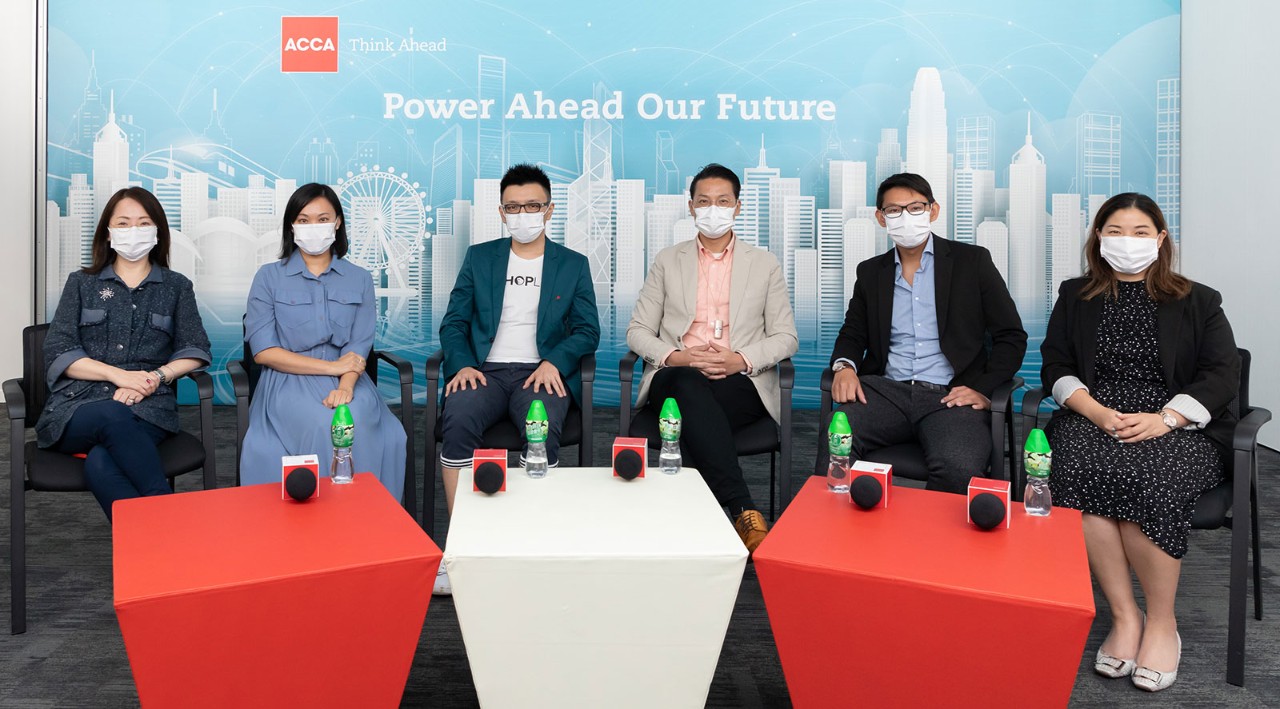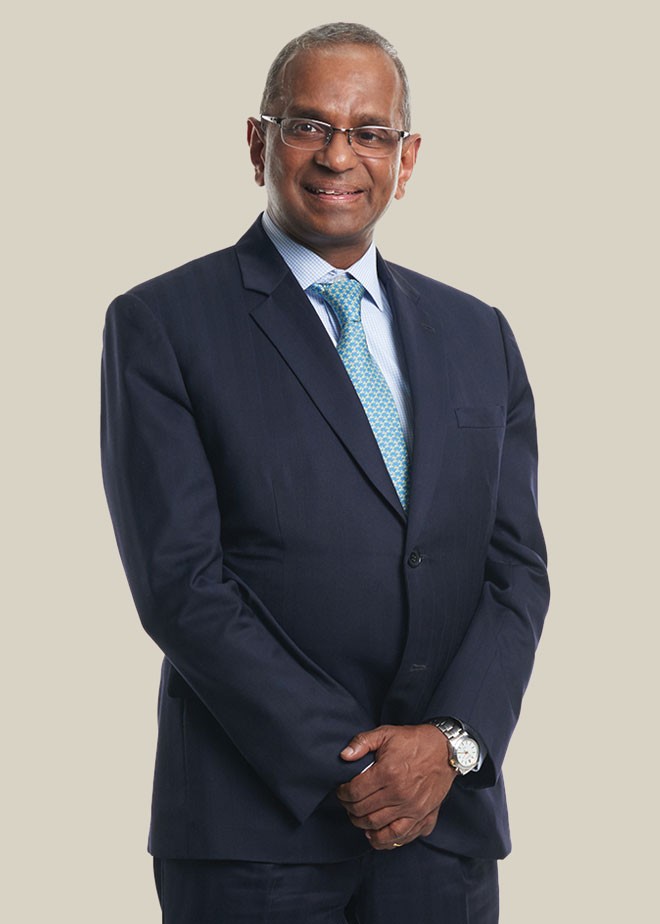
Businesses will need to be digital and sustainable if they are to stay afloat. But business leaders during a recent conference celebrating 70 years of ACCA in Hong Kong have stressed that digital transformation must be done right and that sustainability depends on creating a digital ecosystem that serves all companies.
Companies have been using technologies such as robotic process automation to improve efficiency and communication, but panellists at the virtual event made clear that addressing customer pain points should always be the ultimate goal. Digital tools are not in themselves the desired goal, merely the enablers for it.
Customers first
‘Everything starts from customers – our objective is to elevate customer experience to the next level,’ Keith Chan, vice president and CFO at McDonald’s Hong Kong, told the conference.
A leader in digital transformation, McDonald’s offers omnichannel convenience. Customers can order from a digital menu board at front counters, self-ordering kiosks, the mobile app or McDelivery. The company now accepts more than 10 cashless payment methods to facilitate the process. Management also gets insights on a real-time basis through data visualisation tools to stay agile and make smarter decisions.
McDonald’s employees with an innovative mindset are invited to join a digital task force that is leading changes. But the best way to improve services, Chan said, is to have frontline staff on board to share the pain points that customers are experiencing.
We should not adopt tools that are only for today’s use, but those that are future-proof, to bring you to the next stage
Also a believer in the customer-centric approach is Jessica Lam, group chief strategy officer at WeLab, which operates WeLab Bank, one of the first virtual banks in Hong Kong. She told the conference: ‘Whatever we provide needs to cater to customers – is it a convenient product and is it something they want?’
Virtual banks are widely seen as competitors to traditional banks, but Lam said WeLab does not see it that way: banking is not a one-size-fits-all market, and the main purpose is to give customers more choices.
‘There is no need to reinvent the whole model,’ she explained. ‘Rather, there can be a combination of the best of the old and new. Digitalisation does not aim to be disruptive, but technology can be used as a tool to augment or enhance existing processes to ultimately deliver a more efficient or superior customer experience.
‘For example, being able to remotely open a bank account in as fast as five minutes from your mobile phone is something quite new to the Hong Kong market.’
And when adopting digital tools, decision-makers should be forward-looking and opt for future-proof technologies, urged Alice Wong FCCA, CFO at Hong Kong Television (HKTV) Network, a leading e-commerce player in the city.
‘We should not adopt tools that are only for today’s use, but those that are future-proof, to bring you to the next stage,’ she said. For example, her company has found horizontal and modular robotic systems that work better for Hong Kong’s unique conditions.
Successful digital transformation requires effort from everyone in the organisation, the conference’s panellists said, and companies should run and encourage training for employees.
Mutual benefit
According to Alexander Chan, co-director at the Mills Fabrica, a local incubator for tech-style startups, some of the best ideas can come from business partners. ‘Through roundtables or platforms for exchange and mutual learning, we connect corporations who know customers’ pain points with tech startups who have the technology to address those so as to identify best practices or synergies,’ he said.
Every week his company discusses internally news on global tech trends that could be relevant to the company so it can stay informed about what’s going on.
External help sometimes is also much needed when businesses want to embrace digital tools but have no resources or expertise. For example, e-commerce enabler Shopline helps small businesses go digital by offering solutions to integrate their online and offline business.
Shopline’s general manager Plato Wai said: ‘We hope to be an adviser to help small and medium-sized enterprises transform their business model at a strategic level.’
Sustainability
All panellists agreed that keeping their tech-savvy business models sustainable will require more partners to follow the same course. This requires changing the mindset of more players.
‘Sustainability cannot be achieved on your own. Your upstream and downstream business partners need to be sustainable too,’ said HKTV’s Wong. ‘We don’t want to just build an e-commerce platform but a digital ecosystem for everyone in society.’
One way to do that is to share data with different parties such as merchants, academics and researchers to enable them to try new technologies. Another way is to influence others to move further into the digital world. WeLab’s Lam said: ‘We can all be influencers and educators to encourage others to accept new things.’
To achieve sustainability, one doesn’t just need hard skills training but also education to cultivate a different mindset
The panelists also shared ways for companies to promote environmental sustainability and social responsibility while staying profitable.
McDonald’s believes building brand trust to retain customers is crucial to maintaining profitability. To achieve this, the company is committed to providing customers with affordable and new items and adopting measures to cut plastic consumption.
Meanwhile, Shopline is working to address inequality by popularising technology. The company offers affordable tech solutions to small businesses.
Customer retention
Both companies’ moves are in line with consumers’ growing demand for good environmental, social and governance (ESG) practices. Chan said the Mills Fabrica management always keeps the principle of ‘do business and do good’ firmly in mind.
‘Millennials want to purchase from companies whose values are aligned with theirs,’ he said, adding that customer retention is closely related to good ESG practices. Finance professionals need to think of generations rather than quarters, and new technologies will be helpful to deliver long-term returns for the company. To balance social responsibility and profitability, Chan reminded decision-makers to consider both the timeframe for return on profit and ways for creating quick wins.
According to Lam, the only thing that sustainability requires is a change of mindset. ‘To achieve sustainability, one doesn’t just need hard skills training but also education to cultivate a different mindset. The power of forward thinking and planning is important,’ she said, adding that finance professionals should stay open-minded and intellectually curious.
Those in leading positions in particular will have to think ahead.
‘CFO stands for chief future officer,’ joked Chan. ‘One should understand the big picture, anticipate mega trends, and innovate for growth.’

